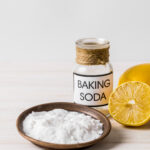
Overview
Coffee is one of the most popular beverages worldwide, loved for its rich flavor and stimulating effects. Yet, despite its widespread use, many people wonder whether their daily cup of coffee could be affecting their blood pressure. This blog post will delve into the science behind coffee and its impact on blood pressure, providing you with a comprehensive understanding of how this beloved beverage influences your health.
Understanding Blood Pressure and Hypertension
Blood pressure measures the force of blood as it pushes against the walls of your arteries. Arteries are the blood vessels responsible for carrying blood from your heart to the rest of your body. When the force of this pressure is consistently high, it leads to a condition known as hypertension, or high blood pressure. Hypertension is a serious health concern that increases the risk of heart disease, stroke, and kidney disease.
How Coffee Affects Blood Pressure
Short-Term Effects
Caffeine, the primary active ingredient in coffee, is a stimulant that can cause a temporary spike in blood pressure. This effect is particularly noticeable in individuals who do not consume caffeine regularly. The increase occurs because caffeine narrows blood vessels, forcing the heart to pump blood with more pressure. Studies have shown that consuming 200-300 mg of caffeine—approximately the amount in 1.5-2 cups of coffee—can raise systolic blood pressure (the top number) by an average of 8 mm Hg and diastolic blood pressure (the bottom number) by 6 mm Hg. This increase can last for up to three hours after consumption.
Long-Term Effects and Tolerance
Interestingly, regular coffee drinkers tend to develop a tolerance to caffeine, which reduces its impact on blood pressure over time. Research suggests that moderate, habitual coffee consumption (1-3 cups per day) does not significantly increase the risk of developing hypertension. In some cases, regular coffee consumption may even have protective effects due to the antioxidants and other bioactive compounds found in coffee.
Potential Risks of Excessive Caffeine Intake
While moderate coffee consumption is generally considered safe, consuming too much caffeine can lead to several side effects. The U.S. Food and Drug Administration (FDA) recommends that adults limit their caffeine intake to no more than 400 mg per day, equivalent to about four or five cups of coffee. Exceeding this amount can cause side effects such as insomnia, anxiety, rapid heart rate, and nausea. Individuals who are sensitive to caffeine or have certain medical conditions, like arrhythmias or severe hypertension, should be particularly cautious.
The Relationship Between Coffee and Heart Health
Despite the temporary increase in blood pressure that caffeine can cause, long-term studies have shown that regular coffee consumption is not associated with a heightened risk of hypertension or cardiovascular disease. In fact, drinking 3-5 cups of coffee per day has been linked to a 15% reduction in the risk of heart disease and a lower risk of premature death. These benefits are believed to stem from the antioxidants in coffee, which help reduce oxidative stress and inflammation in the body.
Should You Avoid Coffee If You Have High Blood Pressure?
For most people with high blood pressure, moderate coffee consumption is unlikely to worsen the condition or increase the risk of heart disease. However, if you do not regularly consume caffeine and notice a significant spike in blood pressure after drinking coffee, it might be wise to limit your intake until your blood pressure is under control.
If coffee causes you to experience adverse effects, such as insomnia or anxiety, consider switching to decaffeinated coffee. Decaf coffee contains many of the same beneficial compounds as regular coffee, minus the caffeine, which can help mitigate any negative impact on blood pressure.
Beyond Coffee: Managing Blood Pressure Through Lifestyle Changes
While monitoring your coffee intake is important, maintaining healthy blood pressure involves more than just adjusting your caffeine consumption. Here are some effective strategies to manage your blood pressure:
- Eat a balanced diet: Focus on whole foods like fruits, vegetables, lean proteins, and whole grains, while limiting your intake of sodium.
- Exercise regularly: Physical activity is crucial for maintaining healthy blood pressure and overall heart health.
- Manage stress: Practices such as yoga, meditation, and deep breathing can help reduce stress and its impact on blood pressure.
- Limit alcohol and avoid smoking: Both habits can negatively affect blood pressure and cardiovascular health.
- Get enough sleep: Quality sleep is essential for maintaining overall health, including blood pressure levels.
The Takeaway
The relationship between coffee and blood pressure is complex. While caffeine can cause a temporary increase in blood pressure, especially in those who are not regular coffee drinkers, moderate coffee consumption is not likely to pose a significant risk to your cardiovascular health. In fact, the antioxidants in coffee may offer protective benefits, making it a safe and potentially beneficial addition to your diet when consumed in moderation.
As always, if you have concerns about how coffee may be affecting your blood pressure, it’s best to consult with your healthcare provider. Balancing your coffee intake with a healthy lifestyle will help you enjoy your cup of joe without compromising your heart health
FAQs on Coffee and Blood Pressure
Can drinking coffee increase my blood pressure?
- Yes, drinking coffee can cause a temporary increase in blood pressure, particularly in people who do not consume caffeine regularly. This spike is usually short-term, lasting up to three hours. However, for regular coffee drinkers, the body often develops a tolerance to caffeine, which reduces its impact on blood pressure over time.
Is it safe to drink coffee if I have high blood pressure?
- For most people with high blood pressure, moderate coffee consumption (1-3 cups per day) is generally safe and unlikely to worsen the condition. However, if you notice a significant rise in your blood pressure after drinking coffee, you may want to limit your intake or consult your healthcare provider.
Does decaffeinated coffee affect blood pressure?
- Decaffeinated coffee has minimal effects on blood pressure because it contains little to no caffeine. It still offers many of the beneficial compounds found in regular coffee, such as antioxidants, without the potential blood pressure-raising effects of caffeine. If caffeine sensitivity is a concern, switching to decaf may be a good option.












